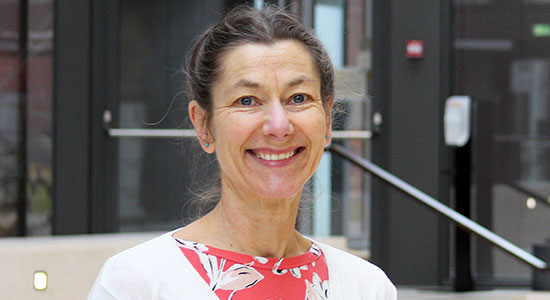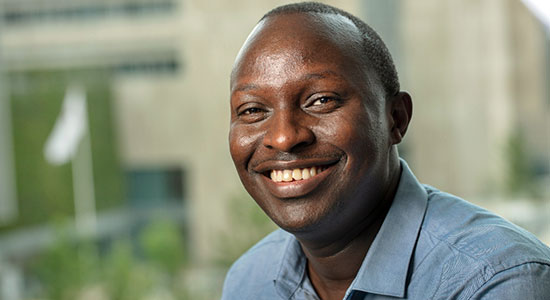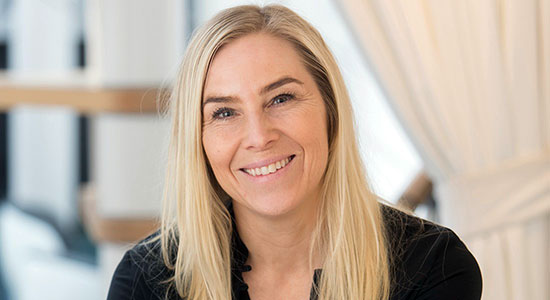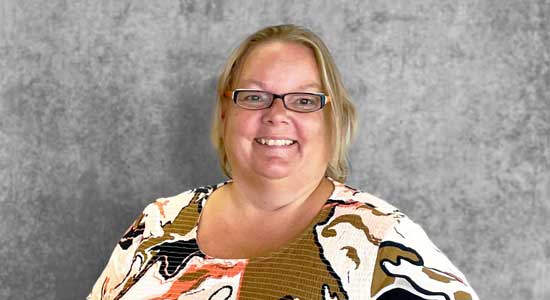Who is it for?
The Master of Medicines Regulatory Affairs is continuing professional development for professionals in the pharmaceutical industry.
The Master’s programme targets working professionals from the regulatory and legislative fields as well as employees in healthcare and biotech companies or in regulatory bodies.
Key benefits
This programme provides you with a comprehensive understanding of the regulatory process at all stages during drug development:
- Analyse, use, and advise on drug regulations and directives
- Understand and develop collaboration across various specialist fields
- Organise the regulatory work to optimise the processes towards authorisation
In addition, you will build a strong network with fellow students and lecturers from the life science industry.
Overview
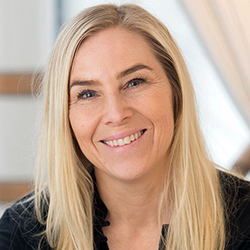
One of the reasons I chose the programme is that it allows me to continue my regular work during my studies, and I can take it at my own pace.
Structure
Part-time study for working professionals
The Master of Medicines Regulatory Affairs is designed to fit into the busy schedule of working professionals. All courses are organised as short, intensive in-person courses and we announce all course dates well in advance.
You can enroll in one course, multiple courses, or the entire programme, depending on your needs and availability. If you opt to take a single course, you are welcome to return and pursue additional courses or the entire programme later.
The master's programme can be completed with part-time study in 2-6 years.
Flexible study
The programme is flexible and allows you to organise the courses in the order and pace that suits you best. It comprises a total of 60 ECTS credits. Each ECTS credit is equivalent to 27.5 hours of study, which includes preparation, course activity and exam.
| Compulsory courses | 34 ECTS |
|---|---|
| Discovery and Development of Medicines | 5 ECTS |
| Clinical Development and Documentation | 4 ECTS |
| Drug Regulatory Science | 3 ECTS |
| Global Pharmaceutical Policy – Rationales and Stakeholders | 4 ECTS |
| Labelling as a Driver for Regulatory Strategy | 3 ECTS |
| Safety of Medicines - from Non-clinical Development to Pharmacovigilance | 4 ECTS |
| The EU Regulatory Environment – Procedures and Applications | 4 ECTS |
| The US Regulatory Environment | 4 ECTS |
| Transparency and Trustworthiness in Drug Development | 3 ECTS |
| Fixed elective courses - choose one course | 4 ECTS |
| Quality - Drug Substance and Drug Product | 4 ECTS |
| Biopharmaceuticals - Quality Development and Documentation (4 ECTS) | 4 ECTS |
| Elective courses | 10 ECTS |
| Choose from a selection of courses. | |
| Master's project | 12 ECTS |
| Complete the programme with Master's project. | 12 ECTS |
Bridging the gap between practice-based knowledge and the latest research
We prioritise bridging the gap between practice-based knowledge and experiences, and the latest research in interdisciplinary regulatory science by joining leading experts from the Life Science industry and university researchers.
By attending the Master of Medicines Regulatory Affairs you will have the opportunity to build networks with both lecturers and fellow students. This is an important advantage that can support your career development opportunities in the Life Science industry.

Courses
Elective Courses
Click on the link below to view the elective courses.
Compulsory courses
To apply and view the full description and details, please click on the course.
Teaching staff
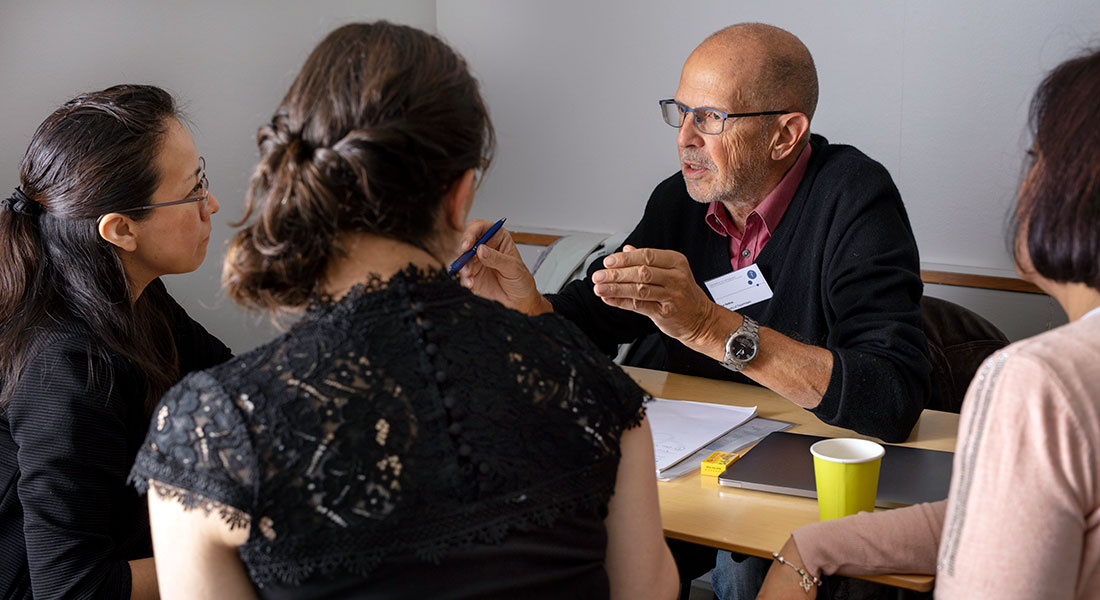
The teaching staff comprises leading researchers from the university and world-class experts from the life science industry. This collaboration enables an outstanding combination of research-based and close-to-practice teaching, fostering an easier transfer of knowledge and skills into work situations.
You can find more information about the teaching staff under each course description.
Head of studies
Partners

Atrium
The Master of Medicines Regulatory Affairs is a co-creation between the University of Copenhagen and Atrium.
Atrium is an international educational academy established in 1972. As an independent part of the Danish Association of the Pharmaceutical Industries, Atrium has a close connection to the experts in the pharmaceutical industry and medicines agencies. Atrium is one of Europe’s leading private course providers of practice-based courses in regulatory affairs.
Through a close collaboration with leading experts in the pharmaceutical industry, Atrium ensures high quality research, academic level, and world class professors.
A total of 5 courses at the Master of Medicines Regulatory Affairs are offered in collaboration with Atrium – 3 compulsory courses and the 2 fixed elective courses.

Copenhagen Centre for Regulatory Science
CORS aims at being one of Europe’s leading centres for research and education in Regulatory Science. Their objective is to participate in building the regulatory framework that will make innovative medicinal products available to patients.
CORS was established to meet the University of Copenhagen’s strategic commitment to become internationally influential in the field of research and education in regulatory science.
This strategic centre contributes to the Master of Medicines Regulatory Affairs through interdisciplinary research in regulatory science.
The mission of CORS is to improve the drug regulatory system and improve the health of the society and sustainable drug innovation.

I can think of many occasions during my daily regulatory affairs work where I have applied the broad knowledge from the MRA courses for problem solving.
Tuition Fees
Master's programme
EU, EEA or Swiss citizens: From 235.341 DKK.
Non-EU, non-EEA, or non-Swiss citizens: From 271.891 DKK.
An entry fee of 10,000 DKK is included in both prices.
The total programme tuition fee varies based on your selected elective courses. The fees for individual courses are listed in the course presentation.
Citizens from the EU, EEA, and Switzerland are eligible for reduced tuition fees according to EU legislation, which explains the disparity in the tuition fees.
Tuition fees are charged per course. You can plan the sequence and the pace of your courses to suit you, and we will invoice you accordingly. Master students, unlike single course participants, get a discount on the compulsory course fees, except for one course: Discovery and Development of Medicines. Please see fees on course descriptions.
Funding
The University of Copenhagen does not offer grants or scholarships for the Master of Medicines Regulatory Affairs.
Gross Salary Scheme/Bruttolønsordning
You might consider financing parts of your tuition fees through the Gross Salary Scheme. A gross salary scheme is a tax advantage that allows you to include the tuition fee expense as part of your gross salary. In essence, the tuition fee will be deducted from your salary before taxes are applied.
If you are working in Denmark, you can learn more about the gross salary scheme (Bruttolønsordning) at the Danish Tax Agency:

Admission
The Master admits full programme students every year. You can apply for admission from 1 June to 1 November and studies begins in February.
Admission criteria
Qualifying degree
Applicants must hold a Bachelor's degree or, a professional Bachelor’s degree, a diploma degree, a Master’s degree in Health and Medical Sciences, Natural Sciences, Applied Sciences or equivalent.
Work experience
After completing the qualifying degree, you are required to have a minimum of two years of relevant work experience in the pharmaceutical industry, in a medicines agency or in another relevant organisation or company.
English proficiency
You must have a standard of English equivalent to level B in Danish secondary education.
Admission criteria exemption
The admissions committee may consider applicants who do not possess one of the specified qualifying degrees if the applicant is deemed to possess comparable educational qualifications. Please note that the requirement of having two years of relevant work experience will not be exempted.
Collect documentation for your application
An official certified diploma and transcript of academic records, with stamp and signature from your home university.
In case the original documents are not available in one of the following languages: Danish, Swedish, Norwegian, English, German or French, you are required to upload a certified translation with the copy of the original document.
A CV with your relevant work experiences which clearly states workplaces, specific work periods and job responsibilities.
You can document your English language proficiency in one of the following ways:
Native English language
Native English speakers from the USA, Canada, Australia, New Zealand, UK or Ireland may submit a copy of the page of their passport that has their photograph as proof.
Diploma from a Nordic university
Nordic applicants can demonstrate their English proficiency by submitting a certified copy of a high school diploma proving that they have passed English level B or by submitting a certified copy of a bachelor's or master’s diploma from a Nordic university.
Degree from an English speaking country
Applicants who have earned a bachelor’s or master’s degree from the USA, Canada, Australia, New Zealand, UK or Ireland can demonstrate their English proficiency by submitting a certified copy of their degree certificate if their degree was taught in English. A semester or year spent on a student exchange programme is not sufficient.
English working language
Applicants working in companies with English as the official working language can demonstrate their English proficiency by submitting a letter from their employer, on official headed paper, stating that their working language is English.
English language proficiency test
Applicants can demonstrate their English proficiency if they have passed a recognised English language proficiency test with an adequate score. We accept the following tests:
|
Name of test |
Minimum score |
Information required for online check of test |
|
IETLS (academic) IELTS Home Edition |
6.5 (overall test score) 6.5 (overall test score) Only overall score will be considered. |
TRF Number (Test Report Form Number) |
|
TOEFL
(MyBest Scores are not accepted) |
83 83 560 |
Registration number |
|
Cambridge Advanced (CAE) |
Passed at level C1 or C2 |
ID-number and Secret Number |
|
Cambridge Proficiency |
Passed at level C1 or C2 |
ID-number and Secret Number |
ELTS and TOEFL tests older than 2 years will not be accepted (counted from the programme application deadline). The Cambridge Assessment English may have been gained at any time.
A copy of your passport (photo page) is required for non-Danish citizens. If you are a non-EU/EEA citizen with a permanent Danish residence permit, a copy of this permit must be uploaded.
Please check whether you require a visa to enter Denmark by consulting the list from the Danish Immigration Service:
If you are admitted to the programme and require a visa, we will assist you in the application process. Please note that the visa application can only begin upon receipt of the initial tuition fee installment.
Also note, that acceptance into a part-time study programme does not entitle you to a residence permit in Denmark. For additional details, please contact the Danish Immigration Service:

Guidance and admission
Annette Villumsen
Study Administration Officer
Tel.: +45 35 33 60 66
Master of Medicines Regulatory Affairs
Continuing Professional Development
Faculty of Health and Medical Sciences
University of Copenhagen
Blegdamsvej 3B
2200 Copenhagen N - DK



